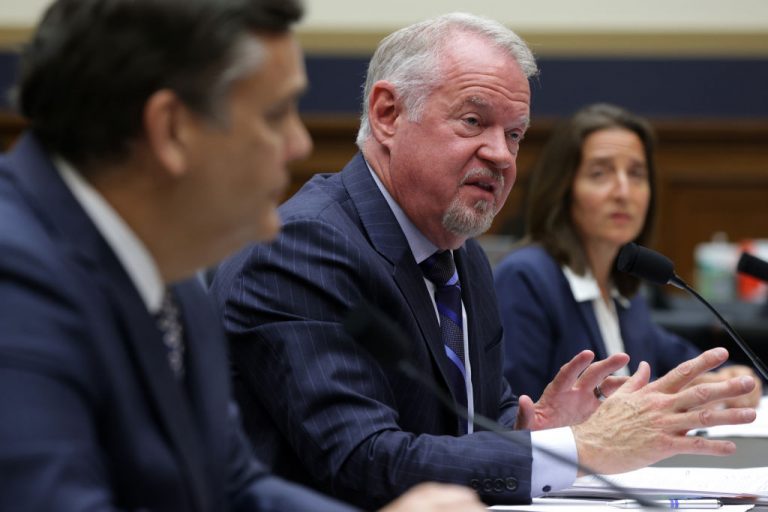On June 30, the Corporate Vice President of Microsoft, Tom Burt, testified before the House Committee on the Judiciary, revealing that the U.S. government has been spying on Microsoft users. Burt pushed for stronger privacy protection laws.
He highlighted how cloud infrastructure has changed the way federal agencies obtain private information. Prior to cloud technology, law enforcement agents had to present subpoenas and search warrants to obtain a person or entity’s personal documents. As a result, targets would receive advance notices.
However, the process has now changed with the adoption of cloud services. “But for citizens, businesses, and organizations throughout America, this expectation of privacy is unknowingly misplaced. Their own government is secretly demanding users’ data, without their knowledge, from cloud service providers,” Burt said in the testimony.
The demands are made by exploiting a subsection of the Electronic Communications Privacy Act (ECPA), a 35-year old law passed in 1986 that extended restrictions on government wiretaps of telephone calls to electronic data of computers. He added that Microsoft and other companies receive “boilerplate secrecy orders” not supported by factual or legal analyses.
The company states that it receives almost 2,400 to 3,500 orders from federal law enforcement every year, roughly averaging seven to 10 orders per day. These orders comprise one-third of all legal demands received by Microsoft.
Success
You are now signed up for our newsletter
Success
Check your email to complete sign up
“Multiply those numbers by every technology company that holds or processes data, and you may get a sense of the scope of the government’s overuse of secret surveillance,” Burt said. Just a decade ago in 2009, federal judges approved a total of around 2,400 requests for sneak and peek secret warrants nationwide, which is less than Microsoft alone receives from law enforcement now.
The fact that courts approve of clandestine surveillance of so many Americans is a “sea change” when compared to the past. To secretly search someone’s physical office, law enforcement will have to prove to a judge why the search is justified. “However, if they want to search your virtual office, they just serve a simple warrant on your cloud provider and obtain secrecy through a boilerplate process,” Burt said.
The Microsoft executive called on the judiciary committee to make changes to the ECPA, which he termed an “antiquated law.” He proposed the following changes:
- Congress should end indefinite secrecy orders.
- The government should be required to notify cloud users targeted by secret search orders once the secrecy expires.
- Congress should establish a standard that makes secrecy orders meaningful.
- The standard of a secrecy order must be consistent with the First Amendment.
- Greater transparency is needed regarding secrecy orders.
- Congress should codify a statutory right allowing cloud service providers to challenge secrecy orders deemed harmful.
Burt said that government accountability hinges on transparency and secrecy orders should not be the norm, but instead a rare exception.
“Providing notice to an individual the government targets with a warrant or other demand for information is a critical protection against government overreach. Safeguarding one’s constitutional rights requires knowledge that those rights are at risk. Without notice, an individual is left in the dark, unable to raise privileges or other objections that may be applicable, and unable to protect their rights in court,” Burt stated.
Spying on conservatives
Multiple reports of government spying on American conservatives have surfaced recently. In an interview with WABC radio in May, former New York Mayor Rudy Giuliani revealed that the FBI had monitored his Apple iCloud account since late 2019, when he used to chat with Donald Trump about his House impeachment proceedings.
Giuliani’s lawyer learned of the covert wiretapping operation from the U.S. Attorney’s Office in Manhattan. “He asked [the prosecutor] to repeat it because he couldn’t believe it was true… To me they just trashed the president of the United States,” Giuliani said.
Fox News host Tucker Carlson recently said on his show that the National Security Agency (NSA) has been spying on his electronic communications, attempting to leak messages and force his show to get canceled.
A person ”who is in a position to know” told Carlson about a story that the news host is working on, which could only be learned of by spying on his texts and emails. Carlson stated that the NSA had captured the information without his knowledge.
“The Biden administration is spying on us. We have confirmed that… We filed an FOIA request of Freedom of Information Act request asking for all information that the NSA and other agencies have gathered about this show. We did it mostly as a formality… If they are doing it to us, and again, they are definitely doing it to us, they are almost certainly doing it to others,” Carlson said on the show. He called upon Congress to force intelligence agencies to be transparent.
















